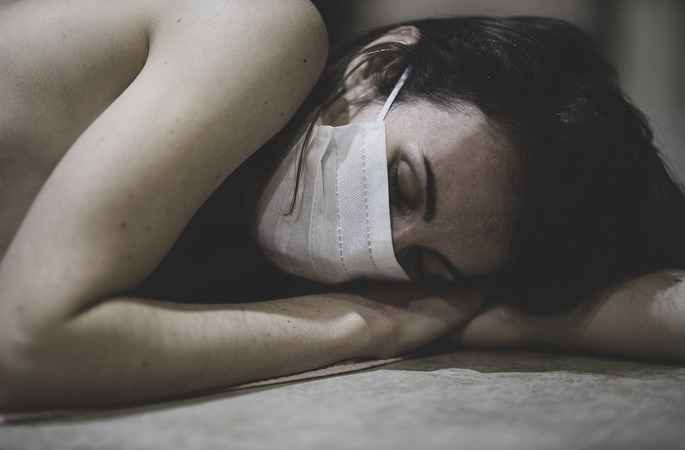“Let us remember and prioritise women whose uteruses too need to be protected for the good of the nation.”
The COVID-19 global pandemic is wreaking havoc on almost every area of society. Global headlines herald the health, economic, agricultural, and social impacts of the novel coronavirus. Yet, often unmentioned and even ignored, are information-based predictions about how the virus could decimate the sexual and reproductive health and rights for women across the globe.
I am the founder of Rhythm of Life Uganda, an organization that provides health and education services to women and girls living in the red light district of Kampala, Uganda. I grew up in this district, and my childhood there exposed me to unbearable challenges including insults, unfair judgments, a dearth of opportunities, and most striking: a lack of access to healthcare. Now, as an activist and advocate, I am committed to helping women and girls speak up and stand up for our rights through all times.
In the era of Coronavirus, I am becoming increasingly fearful of the impact this virus will have on our sexual and reproductive rights. Already, we are up against any movements using either public or private cars, most static clinics that provide sexual and reproductive health services are closed, and mobile clinics and health outreaches that are often conducted in the community have also been shut down. All this proves the negative impact on the delivery of sexual and reproductive health care among women and girls in Uganda.
I call on the government of Uganda, policymakers, providers, and advocates to be aware of and to put at the centre of current and future policies, the connection between our national outbreak response and the sexual and reproductive health and rights of women and girls.
We know that access to effective contraception is one of the most cost-effective interventions to reduce maternal mortality by preventing unintended pregnancy. Everyone must be able to access contraceptive information and services during this pandemic, to protect both physical and mental health, and to reduce avoidable pressures on the health system that will stem from unintended pregnancies.
Uganda’s lockdown began in late March 2020, and even now that it is beginning to ease, there continues to be limited or no access to sexual and reproductive health services. Travel has been restricted, healthcare system capacity is reduced, and the economic slowdown has meant reduced financial resources. Of course, during such public health emergencies, human and financial resources are often diverted from various health programs to respond to the infectious disease outbreak. Sexual and reproductive health services are being impacted by the pandemic and must be prioritised.
Even as lockdowns ease, there is a real worry about a post-COVID-19 baby boom season due to people spending more time at home and less access to contraception.
Therefore, thousands of women who are staying indoors with no protection measures are most likely to have several unwanted pregnancies.
As the coming weeks and months unfold and we look ahead to a post-COVID-19 era, we will begin to understand the effectiveness and impacts of our outbreak response.
Outbreaks can heighten vulnerabilities of various population groups, accentuate gender inequities, and lead to the neglect of the needs and rights of the most marginalized, including women and girls, refugees, migrants, people living with disabilities, and people living with HIV.
The COVID-19 pandemic poses particular threats to poor and marginalized women who face greater difficulty in accessing the SRHR services, resources, and access to quality health and social services. Women’s societal roles as caregivers, wives, and mothers place them at greater risk in exacerbating the impact of the pandemic.
We are witnessing the social and economic pressures that are leading to increased domestic and gender-based violence and sexual exploitation, and the pressure on health services disrupting routine maternity, access to contraceptives, abortion, and other sexual and reproductive health services.
As much as we appreciate the government for the stringent measures put up against the spread of this pandemic, it is critical that responses to this crisis recognize that sexual and reproductive health services are essential. People must have the right to make decisions about their bodily autonomy and integrity.
We cannot postpone any longer essential access to sexual and reproductive health services. This time around, let us defy history, work toward international co-operation, and pull together to develop inclusive, global views on how to learn from, resolve, and come through this latest threat to health for all.
As we are quarantined in our respective homes, let us remember and prioritise women whose uteruses too need to be protected for the good of the nation.




leave a comment